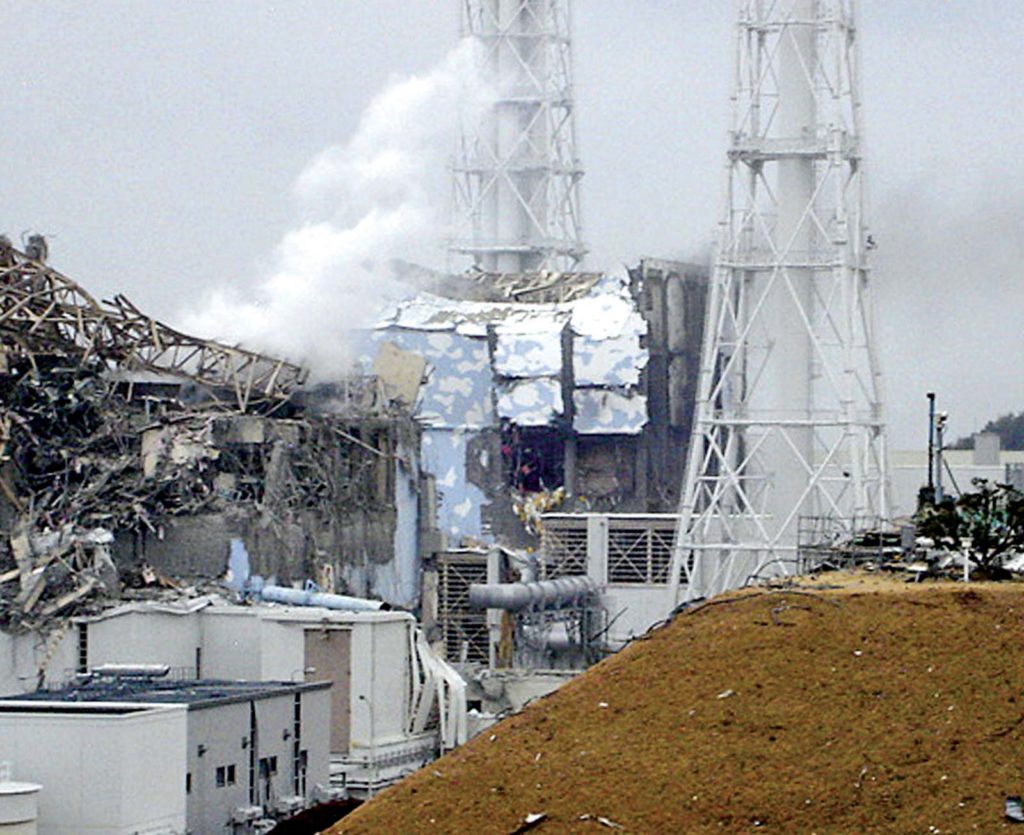Ten Years Since Fukushima

It was ten years ago that the earthquake and tsunami in Japan caused the greatest nuclear disaster since Chernobyl. There’s been any number of stories to remember the anniversary and discuss the many unsolved problems. Here’s one on the impact upon water and what to do with it:
Beside the ruins of theFukushima Daiichi nuclear plant, more than 1,000 huge metal tanks loom in silent testament to one of the worst nuclear disasters in history, the meltdown of three nuclear reactors 10 years ago this month.
The tanks contain nearly 1.25 million tons of cooling water from the 2011 disaster and groundwater seepage over the years — equivalent to around 500 Olympic-size swimming pools — most of it still dangerously radioactive.
Running out of space to build more tanks, the government wants to gradually release the water into the sea — after it has been decontaminated and diluted — over the next three decades or more.
Even though a formal decision has yet to be announced, the government and Tokyo Electric Power Co. (TEPCO) have insisted that an ocean release is their preferred solution and that it is perfectly safe.
The only thing holding them back appears to be the Olympics and the bad publicity it could generate before the Games begin in July, experts say.
The idea of releasing the water has infuriated Fukushima’s fishing community, only now getting back on its feet after taking a battering in the wake of the 2011 disaster and the subsequent ocean contamination. Also angry is South Korea, even though it is more than 600 miles away across the sea.
“Recovery is the most important thing for us, and releasing the water will pull back the recovery process,” said Takayuki Yanai, head of the trawler fisheries cooperative association in the port of Onahama. The local fisheries industry is still only half as big as it was before the 2011 earthquake and tsunami, he said. “I really want them to stop. There must be other options.”
There’s often talk from some quarters about nuclear as part of the renewable energy world. And I get that in a vacuum. The problems though are legion. When things go wrong, they go very, very wrong and without any solution to it. That’s kind of a huge issue that you can’t handwave away. The other side of this is that the nuclear industry and regulations around it have existed on an elite, tight, cloistered level ever since the beginning of the industry. That’s ultimately the story of The China Syndrome and why it was such a powerful film that, when combined with Three Mile Island, ended the building of new nuclear plants. The truth is that there’s not much reason to just trust and believe either the government or the nuclear industry when they talk about safety. It tapped into a larger and quite rightful resistance to technological-scientific-institutional domination in the 1960s and 1970s that included the popular epidemiological movement and the rise of organic food. If that’s led to a reflexive distrust of government that has huge downsides (anti-vaxxers for instance), we have to look at the reasons why this has happened, which does extend farther than “people are idiots.”
This has hardly just been an American issue. If you were a Japanese fisherman who lived through Fukushima, would you trust your government to release radiation-free water? Why would you believe them? Where’s the accountability from either the government or the nuclear industry?


